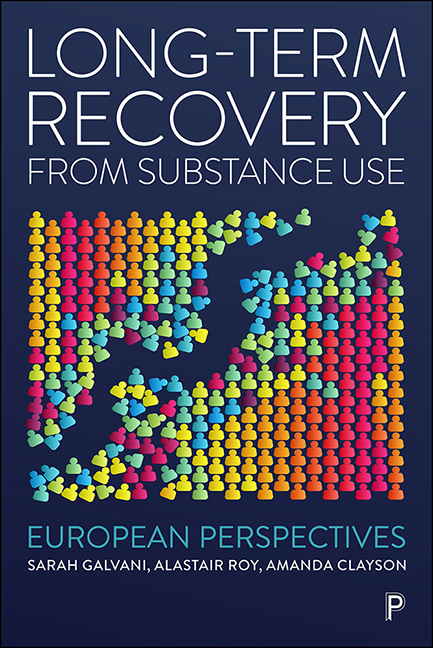13 - When long-term recovery isn’t an option: people at the end of life
Published online by Cambridge University Press: 15 September 2022
Summary
Introduction
Long-term recovery is not something that people who use alcohol and/or other drugs can aim for as they approach the end of their life. But we can learn much from the palliative care field about how to develop ideas about recovery that are more inclusive of all people using substances as well as the people who care for them. This chapter uses brief descriptions of people's lives to question how useful the concept of long-term recovery is for people with chronic health problems (especially those approaching the end of their lives). Drawing on lessons from palliative care, we argue that substance-use policy, commissioning and practice could become more inclusive by prioritising quality of life and the physical/mental well-being of people using substances, regardless of how close to death they are.
Palliative care is defined as ‘The active holistic care of patients with advanced, progressive illness. Management of pain and other symptoms and provision of psychological, social and spiritual support is paramount. The goal of palliative care is achievement of the best quality of life for patients and their families’ (National Institute for Health and Care Excellence (NICE), 2021). It is both a medical speciality and a social movement that aims to improve the care of people who are dying by constantly evolving to meet each individual's changing support needs and maximising their quality of life (Graham and Clark, 2008). Ideally, palliative care commences early on after a life-shortening condition is diagnosed. It runs alongside active treatment, becoming the more prominent aspect of care as the individual becomes progressively more ill. The core ideas used to develop palliative care – focussing on immediate, day-by-day quality of life and attending to both the individual and social/familial aspects of a person's life in a holistic manner – complement current thinking about substance-use recovery. In this chapter, we describe how the concept of recovery could be improved by integrating palliative care approaches within it, thereby achieving a more finely tuned and dynamic balance between health and social care.
At this stage we want to clarify that we are not experts in recovery. We are UK-based researchers interested in the end-of-life care needs of people using substances and the support needs of their caregivers, whether family and friends, drug/ alcohol workers or hospice staff.
- Type
- Chapter
- Information
- Long-Term Recovery from Substance UseEuropean Perspectives, pp. 170 - 182Publisher: Bristol University PressPrint publication year: 2022



